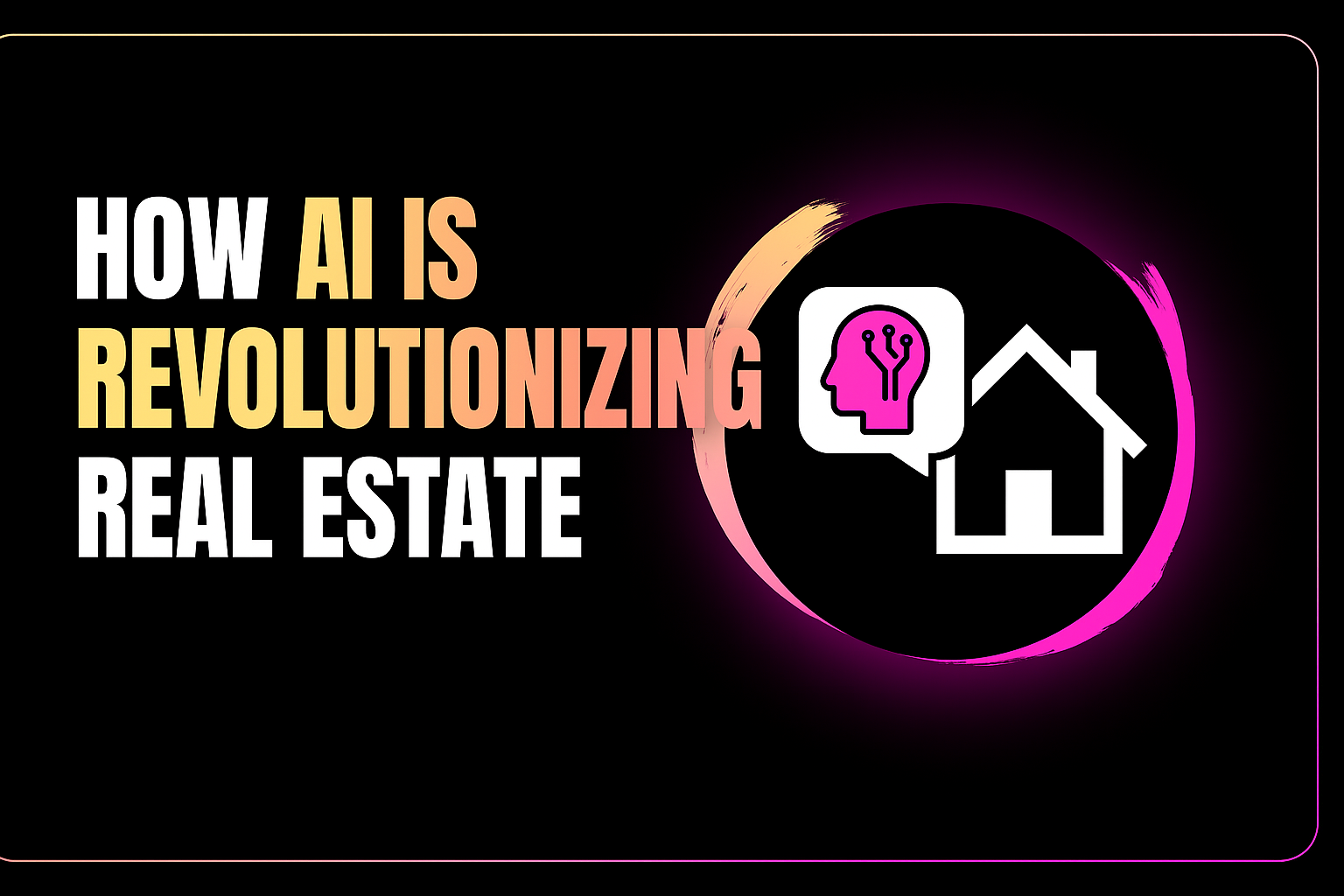
Discover how AI is transforming real estate by automating tasks, enhancing lead generation, and improving valuations. Learn about the benefits, challenges, and how to successfully integrate AI while maintaining the human touch.
Key points
The real estate world? It's changing, and fast. While it's been a bit hesitant to embrace new tech, Artificial Intelligence (AI) is here, and it's making a serious splash. We're talking about a transformation that's reshaping everything from how properties are valued to how you connect with clients. It's not about replacing the human touch; it's about giving agents and brokerages the tools to work smarter, not harder.
Let's dive into how AI is making waves in real estate, turning everyday challenges into opportunities.
Remember all those tedious tasks that eat up your day? Things like sifting through emails or keeping client databases squeaky clean? AI is stepping in to handle these repetitive jobs with incredible efficiency. Think of it like this: AI-powered virtual assistants are taking on the busywork – answering basic client questions and managing follow-ups – freeing you up to focus on what really matters, like building those strong client relationships and developing winning strategies. It's about letting the tech handle the groundwork so you can swing for the fences!
Cold calling used to be a numbers game, right? You'd dial hundreds of random folks, hoping one might be interested in selling. It's laborious, and frankly, a bit of a grind. But now, AI is a powerful asset for finding quality leads. It analyzes massive datasets, looking at everything from online home searches to demographic info and past interactions to pinpoint prospects who are genuinely more likely to be interested. Companies like Offrs and Smartzip are already using AI for this.
What's even cooler? AI can craft personalized calling scripts. It's not just a generic message; it's tailored to each lead's unique profile and past interactions, making your calls way more engaging and relevant. This personal touch seriously boosts your chances of connecting. Plus, AI can automate follow-up tasks, like sending personalized emails or property info, keeping leads warm and ensuring timely communication.
Accurate property valuation is crucial for both you and your clients. AI is totally enhancing this process by crunching vast amounts of data. Tools like HouseCanary and CoreLogic leverage advanced analytics and valuation models to give you precise property valuations and market forecasts. This means you can price properties accurately and gain valuable insights to negotiate better deals.
Opendoor, for example, uses deep learning and AI to value houses more accurately, accounting for home conditions in its pricing models. This helps sellers get fair, competitive offers and speeds up the entire selling process. In fact, homes Opendoor bought using its AI in February 2023 saw an average gain of over $49,000 ten months after purchase. It's cutting out the guesswork and speeding up sales dramatically.
Today's clients expect instant responses. AI-powered chatbots on your website are meeting this demand head-on. They respond instantly to inquiries, setting expectations and giving you time to provide a more detailed human response. Some CRM tools, like Lofty, even use AI to analyze client interactions and web traffic to predict their needs and preferences, leading to highly personalized experiences.
Case Study…
Zillow, with its whopping 226 million active users in 2023, faced a challenge: a tiny fraction of those users actually contacted an agent through the platform. Their solution? An AI personalization model that analyzes over 50 aspects of user behavior to recommend the best possible properties. This personalized system has boosted engagement by an incredible 33%.
Source
Virtual tours and augmented reality (AR) are changing the game for property viewings. Technologies like RealSpace allow potential buyers to explore properties remotely, saving everyone time and reducing the need for so many physical visits. AI can even virtually stage properties with different interior designs and furniture, helping clients truly visualize the space and its potential. These tools aren't just about cool tech; they expand your reach far beyond your local market.
Did you know…
The real estate AI market itself is growing at a rapid pace, surging from around $163 billion in 2022 to approximately $226 billion in 2023, an annual growth rate of over 37%.
AI is certainly a game-changer. Agents who embrace it can gain a serious competitive edge by offering more efficient, data-driven, and personalized services. Overall, AI in real estate is projected to add over $180 billion annually to the U.S. market. In fact, about 75% of leading U.S. brokerages have already started adopting AI technologies.
However, it's not all smooth sailing. Here are a few things to keep in mind:
If you're ready to integrate AI, start by aligning your leadership around a business-led roadmap. Focus on your specific needs within the real estate value chain – whether it's development, operations, or investment.
Here's how to kick things off:
The journey into AI for real estate is an exciting one. It's about harnessing the power of these digital "apes" to supercharge your operations, qualify leads with precision, and free up your human sales executives to do what they do best: build relationships and close deals. It's time to leverage AI not to replace, but to empower.